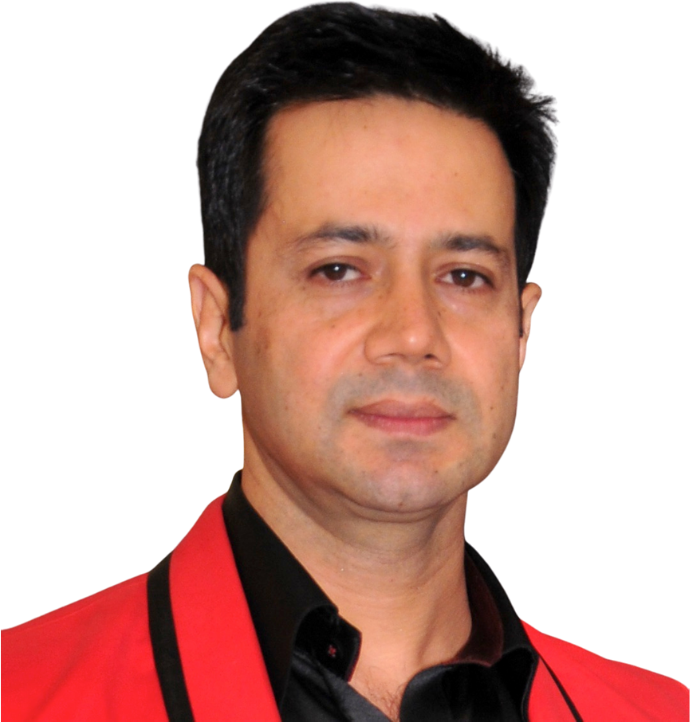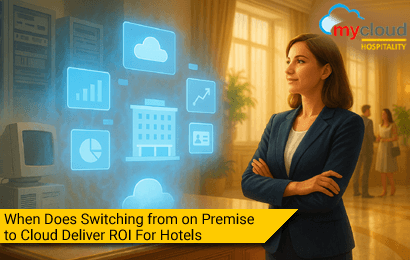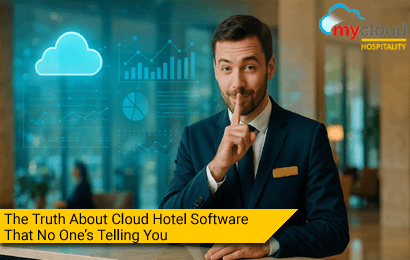The hospitality industry is a dynamic landscape where success hinges on striking the right balance between guest satisfaction and financial performance. Revenue management has become a vital tool for navigating this complexity, enabling businesses to make data-driven decisions about pricing, services, and resource allocation. The integration of Revenue Management Technology (RMS) with mycloud PMS (Property Management System) creates a powerful synergy that empowers hotels to optimize offerings, increase profitability, and deliver exceptional guest experiences. Let’s dive into how revenue management technology can help you make smarter decisions about what to keep and what to cut, driving profitability and efficiency!
What is Revenue Management Technology in Hospitality?
A Revenue management system (RMS) is a technology-driven tool designed to help hospitality businesses optimize their inventory usage and maximize profitability. Rooted in the core principles of revenue management, an revenue management system leverages advanced data analytics, artificial intelligence, and automation to ensure hotels make informed and strategic pricing decisions.
Core Functions of Revenue Management System
- Demand Forecasting: Analyze historical booking patterns and market data to predict occupancy levels.
- Dynamic Pricing: Adjust room rates in real time to optimize revenue during peak and low-demand periods.
- Performance Tracking: Monitor KPIs such as RevPAR, Average Daily Rate (ADR), and occupancy.
- Real-World Example: A mid-sized hotel used a revenue management system to identify that its weekday occupancy was consistently low. By introducing discounted packages targeted at remote workers, the hotel increased midweek occupancy by 25%.
The Importance of Revenue Management in Hospitality
Revenue management is an essential practice in the hospitality industry, blending data analysis, market understanding, and strategic decision-making to maximize a hotel’s revenue potential. It is about selling the right product—whether rooms, services, or experiences—to the right customer segment, at the right price, through the most effective distribution channel, and at the perfect time.
In the hospitality sector, where demand can vary dramatically due to factors like seasonality, local events, and shifting traveler preferences, revenue management becomes critical for staying competitive. For example, during peak travel periods, hotels can implement dynamic pricing to capitalize on higher demand, while during off-peak times, they can use discounts or value-added packages to attract guests and maintain occupancy.
Fact: A report by Deloitte highlights that hotels adopting robust revenue management strategies can achieve up to a 15% increase in RevPAR (Revenue Per Available Room), a key performance metric. This improvement directly translates to higher profitability and more efficient use of resources.
Stat: As per market research report, the global market for revenue management software in hospitality is expected to grow at a compound annual growth rate (CAGR) of 9.8%, reaching $5.4 billion by 2028. These systems enable hotels to leverage data insights, predict demand, and optimize pricing strategies effectively.
How Technology Optimizes Revenue Decisions
Gone are the days of manual spreadsheets and intuition-driven decisions. Today, technology plays a pivotal role in revenue optimization, providing data-driven insights and automating complex processes. Revenue management systems are at the forefront of this transformation.
Automation: A RMS leverages automation to adjust pricing dynamically based on real-time demand fluctuations. This ensures optimal pricing decisions, eliminating manual intervention while maximizing occupancy and revenue.
Analytics: Predictive analytics within an RMS enables hotels to anticipate market trends and guest behavior patterns, empowering them to stay ahead of demand shifts and tailor strategies effectively for future bookings.
Integration: An RMS seamlessly integrates data from booking engines, property management systems, and market intelligence tools, offering a unified platform for data-driven, strategic revenue decisions.
Here are some examples of hotels that leveraged hotel technology to optimize revenue.
Example 1: Marriott International
Marriott International uses advanced revenue management systems to optimize pricing across its global portfolio. By integrating real-time data from its hotel property management systems and market intelligence tools, Marriott adjusts rates dynamically to match demand fluctuations. For instance, during peak travel seasons, the RMS identifies high-demand periods and recommends premium pricing strategies. This approach enabled Marriott to maintain strong occupancy levels and maximize revenue, even in markets with significant competition.
Example 2: OYO Rooms
OYO Rooms, a leading budget hotel chain, has revolutionized its revenue optimization strategies using technology. By deploying an AI-powered RMS, OYO continuously monitors booking patterns, competitor pricing, and seasonal trends. This system allows OYO to implement dynamic pricing across its properties in real time, ensuring competitive rates while boosting occupancy. In one instance, during a city-wide festival, OYO used predictive analytics to anticipate increased demand and adjusted prices accordingly, resulting in a 20% revenue uplift compared to the previous year.
Key Factors in Deciding What Stays and What Goes
Hospitality businesses often face decisions about which amenities, services, or packages to retain and which to phase out. Revenue management system can help evaluate these decisions based on:
Performance Metrics: Focus on services with high revenue and profitability.
Example: A hotel discovers its rooftop bar drives significant revenue, while a rarely used game room incurs losses.
Guest Preferences: Use guest feedback and booking data to identify popular amenities.
Example: Complimentary Wi-Fi is more valued by guests than free parking in urban hotels.
Operational Costs: Evaluate the ROI of offerings to identify cost-heavy, underperforming services.
Example: A hotel removes a high-maintenance fountain that adds little to guest satisfaction.
Market Trends: Adapt to changing demands, such as preferences for eco-friendly amenities or tech-enabled services.
Example: Installing EV chargers to attract environmentally conscious travelers.
How Technology Streamlines Decision-Making
Revenue Management Technology simplifies complex decision-making processes through advanced analytics, real-time data insights, and strategic forecasting, empowering businesses to optimize pricing, inventory, and overall profitability. Here’s how it helps:
Automation and Real-Time Insights: Revenue management systems in hospitality integrate real-time data from booking engines, market trends, and competitor pricing. This allows hotels to respond swiftly to market fluctuations, optimize pricing strategies dynamically, and ensure maximum revenue during both peak and off-peak periods.
Scenario Planning and Predictive Analytics: Advanced RMS tools simulate potential changes in services or pricing strategies, such as offering discounted packages or removing underperforming amenities. These simulations help hospitality businesses forecast their impact on key metrics like occupancy, guest satisfaction, and profitability, ensuring informed decision-making.
Reporting Tools: RMS generates detailed reports on trends, such as changes in RevPAR, ADR, and occupancy rates. These insights help hoteliers identify underperforming areas, adjust strategies, and evaluate the long-term impact of operational and pricing decisions.
For instance, a mid-size hotel in New York used RMS reporting to identify consistently low occupancy rates on weekdays. By analyzing the data, they introduced special weekday corporate packages, resulting in a 15% increase in weekday bookings within three months.
Benefits of Leveraging Revenue Management Technology
Adopting a revenue management system provides significant advantages by optimizing pricing, improving profitability, and enhancing decision-making. It helps hotels forecast demand, streamline operations, and focus on high-value offerings.
- Increased Profitability: Make informed decisions that maximize revenue potential.
- Enhanced Guest Satisfaction: Focus on services and amenities that guests value most.
- Operational Efficiency: Eliminate redundant services and optimize resource allocation.
Fact: Hotels using revenue management systems have reported up to a 20% increase in ADR, according to STR Global.
Challenges and Considerations
A revenue management system revolutionizes decision-making, but challenges like data reliance, balancing technology with human insight, and staff training must be addressed for optimal effectiveness and guest satisfaction. Let’s explore the challenges and considerations.
Over-Reliance on Data: While valuable, data insights should complement, not replace, human intuition and guest feedback to ensure well-rounded decision-making.
Staff Training: Teams must understand and effectively act on RMS insights to realize the full benefits of the system and align decisions with operational goals.
Balancing Costs: While the initial investment in RMS may be substantial, its proven ROI through increased revenue and efficiency often justifies the expense.
Conclusion
Integrating mycloud PMS with Revenue Management Technology is a game-changer for the hospitality industry. It enables hotels to make smarter, data-driven decisions about what stays and what goes, optimizing profitability while enhancing the guest experience.
Ready to transform your property’s profitability and guest satisfaction? Discover how the integration of mycloud PMS and a cutting-edge RMS can elevate your property’s performance. Book a demo today to experience the benefits.










